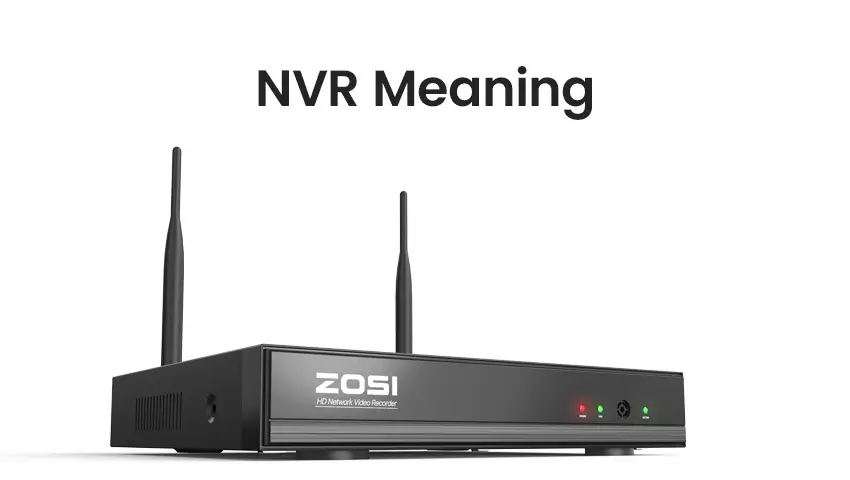Unlocking the NVR meaning reveals a core element of modern IP surveillance: the Network Video Recorder, a sophisticated device responsible for centralizing, recording, and managing high-resolution video streams from network-connected cameras, offering advanced features like remote access and intelligent video analytics.
While Network Video Recorder (NVR) is the most common meaning, NVR can also stand for different things in other fields:
- Never (NVR) – Used as an abbreviation in casual texting or gaming slang.
- Non-Volatile RAM (NVRAM) – A type of computer memory that retains data even when power is lost.
- National Vulnerability Report (NVR) – Used in cybersecurity and risk assessment.
- No Verified Response (NVR) – A law enforcement policy where officers do not respond to alarms without verification.
- Nuclear Verification Regime (NVR) – A term used in international nuclear disarmament discussions.
To avoid confusion, when discussing NVRs in the security industry, we are referring to Network Video Recorders.
Contents
What is an NVR?
An NVR (Network Video Recorder) is a device that records video from IP cameras over a network. Unlike DVRs (Digital Video Recorders), which rely on analog cameras and coaxial cables, NVRs use IP-based technology, providing higher resolution, remote access, and AI-powered features.
NVRs are commonly used in home security, business surveillance, and large-scale security systems due to their flexibility, scalability, and superior video quality.
How Does an NVR Work?
NVRs work by receiving video streams from IP cameras via a network connection. These cameras digitally process the video before sending it to the NVR, which then stores the footage on a hard drive or cloud storage.
Key components of an NVR system include:
- IP Cameras: Capture and transmit video digitally.
- Ethernet Cables (PoE): Provide both power and data transmission.
- NVR Device: Stores and manages recorded footage.
- Hard Drive (HDD): Stores recordings for playback and review.
Key Features of an NVR
- High-Resolution Video: Supports 4K, 8MP, and beyond for crystal-clear footage.
- Remote Monitoring: Access live and recorded footage from anywhere via smartphone or PC.
- AI-Powered Detection: Features like motion detection, human recognition, and smart alerts improve security.
- Scalability: Easily expand the system by adding more IP cameras without complex wiring.
Types of NVRs
- Standalone NVR: Best for home and small business use, plug-and-play installation.
- Enterprise NVR: Designed for large-scale surveillance with advanced storage and AI features.
- Cloud-Based NVR: Stores footage in the cloud for easy remote access and backup.
How to Choose the Right NVR
- Number of Channels: Choose between 4-channel, 8-channel, 16-channel, or more depending on your needs.
- Storage Capacity: Check hard drive support (1TB, 2TB, or expandable).
- AI Features: Look for smart motion detection, human/vehicle recognition, and alerts.
- Compatibility: Ensure it supports your cameras and ONVIF standard for flexibility.
Conclusion
Fully understanding the NVR meaning unlocks the potential for a robust and intelligent surveillance solution, whether securing your home or optimizing business operations. For those seeking to leverage the power of NVR technology, ZOSI’s NVR security solutions offer a compelling blend of performance, reliability, and advanced features, providing unparalleled peace of mind.

